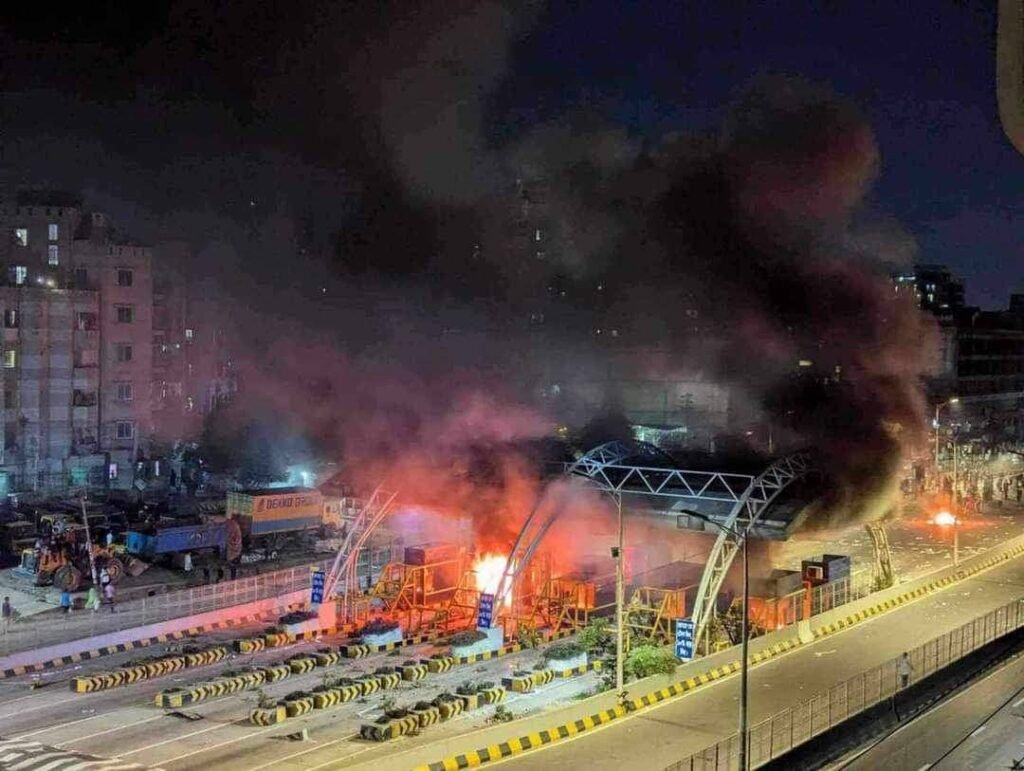Bangladesh Court Scraps Job Quota System
In a landmark decision, Bangladesh’s Supreme Court has ruled to reserve 5% of public sector jobs for veterans’ relatives. This ruling, which comes amid violent clashes that have resulted in over 100 deaths, has sparked significant controversy and unrest across the nation.
The Court Ruling
The Supreme Court’s decision to reserve 5% of public sector jobs for veterans’ families has been a contentious issue. This ruling was initially scrapped by Prime Minister Sheikh Hasina but has now been implemented by the government, leading to widespread public outrage.
Reactions to the Ruling
The implementation of this ruling has led to violent clashes, with over 100 people losing their lives in the ensuing chaos. Public sentiment is highly charged, and protests have erupted across the country, demanding a reversal of the decision.
Protesters’ Demands

The protesters have articulated several key demands:
- Justice for those who have been killed during the protests.
- The release of detained protest leaders.
- The restoration of internet services, which have been disrupted by the government.
- The resignations of government ministers responsible for the crackdown.
Government Response
In response to the unrest, the government has taken severe measures, including imposing a curfew and implementing a communications blackout. These actions have further fueled the anger of the protesters, who accuse the government of using excessive force.
Accusations Against Authorities
Protesters have accused the police and the student wing of the governing Awami League of using brutal force against peaceful demonstrators. These allegations of excessive violence have only intensified the public’s resolve to seek justice and accountability.
Quota System Criticisms
Critics of the job quota system argue that it has been exploited by the ruling Awami League party. Allegations of corruption, lack of accountability, and the escalating cost of living have been significant points of contention.
Impact on Public Sector Jobs
The ruling mandates that 93% of public sector jobs be recruited based on merit, leaving 5% for the families of veterans and 2% for people from ethnic minorities or with disabilities. This shift aims to address the criticisms of the previous quota system.
Broader Implications
The protests have grown beyond the immediate issue of the job quota system, evolving into a broader movement against corruption and economic hardship. The public’s discontent reflects deeper systemic issues within the country’s governance.
International Reactions
The unrest in Bangladesh has resonated internationally, with demonstrations taking place in the UK and the US. These protests, primarily involving Bangladeshi students studying abroad, highlight the global concern over the situation.
Political Context
The role of the Awami League in this crisis cannot be understated. The party’s historical involvement with the quota system and the current accusations against it underscore the political complexities of the situation.
Future Outlook
As the protests continue, the potential for significant political and social reforms looms large. The government’s response and willingness to engage with the protesters’ demands will shape the future of Bangladesh’s political landscape.
The Supreme Court’s decision to scrap job quotas has ignited a firestorm of unrest in Bangladesh. With the government cracking down on protests and the public demanding justice and accountability, the country’s political future hangs in the balance. It remains to be seen whether the authorities will heed the calls for reform and address the underlying issues fueling the discontent.
